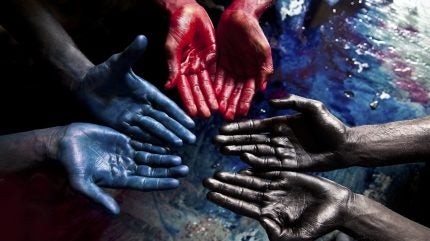
This plea coincides with the publication of its ‘No country is immune: working together to end modern slavery & human trafficking’ report at the UN Headquarters in New York, US.
The report reveals that approximately 50 million individuals, including women and children, are trapped in slavery globally today, and at least $236bn in illegal profits are said to be generated annually through forced labour.
Some of the most common forms of modern slavery encompass compulsory labour, which may also be mandated by governmental authorities, exploitative child labour, coerced matrimony, involuntary domestic work, bonded labour due to indebtedness, illicit organ harvesting and international organ trade, mandated engagement in criminal activities, obligatory panhandling, forced sexual exploitation and recruitment of minors for combat roles.
Philemon Yang, president of the 79th Session of the UN General Assembly stated: “We must take a stronger stand against modern slavery and human trafficking. The launch of the Global Commission’s report will contribute to the dialogue and deliberations around this critical issue. Together, we must forge the diverse partnerships that are critical to our success. By uniting to drive transformative change, we can confront the challenges that enable exploitation to flourish.”
In response to these alarming figures, the Global Commission on Modern Slavery and Human Trafficking, chaired by former UK Prime Minister Theresa May, is calling for renewed action to achieve the UN’s target of abolishing modern slavery by the year 2030.
Despite global pledges to resolve these issues within the framework of the United Nations Sustainable Development Goals, there is a looming risk of not fulfilling this commitment.
May calls any failure to eliminate modern slavery and human trafficking a “moral stain on humanity”.
She remarked: “Every one of those 50 million victims has talents, interests, hopes, and desires that have been stripped from them. They deserve to live their lives, just like anyone else, and if we are to give them back their freedom, and end this heinous crime, we need to act now.”
Global Commission recommendations and actions needed
To reinvigorate global efforts against these crimes, the commission’s report outlines key policy recommendations aimed at fostering change within governments, businesses, and civil societies.
The commission’s advice includes:
- Establishing a universal legal definition of modern slavery
- Enhancing domestic laws and their enforcement
- Requiring businesses to conduct human rights due diligence within global supply chains
- Incorporating anti-slavery initiatives into crisis management strategies
- Reinforcing international monitoring and accountability mechanisms.
Supporting the Global Commission’s call for action, Unilever’s former CEO Alan Jope said: “Companies must begin to examine their supply chains for modern slavery as well as environmental impact – a sub-contractor abusing the environment may also be abusing their workers. It is time more effective action is taken to stop the exploitation of millions of people, with domestic governments and business organisations working in tandem to recognise risk factors and reduce vulnerabilities.”
Furthermore, the report introduces a Prevention Framework for modern slavery and human trafficking, modelled after Adama Dieng’s Prevention of Genocide Framework from 2014.
This framework seeks to identify conditions that make populations vulnerable to exploitation and influence traffickers’ methods.
Commissioner and former UN under-secretary general Adama Dieng said: “Modern slavery knows no borders – it thrives in the shadows of all countries. It is not merely a policy issue, but a profound moral imperative. If we come together as a global community, and implement the changes laid out in the report of the Global Commission on Modern Slavery and Human Trafficking, we can end these egregious violations of human rights once and for all.”



